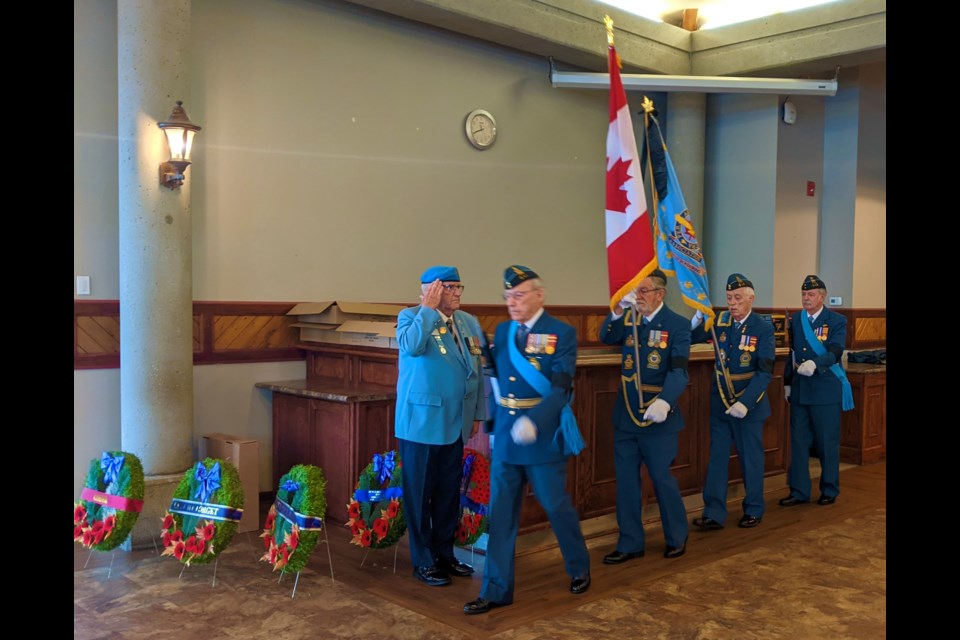Battle of Britain ceremonies were held Sunday morning in Barrie, marking 82 years since the famous air battle.
With rain pelting down outside Southshore Centre, Royal Canadian Air Force (RCAF) 411 Huronia Wing members, those of the Canadian Forces and veterans remembered the battle, from July 10 to Oct. 31, 1940.
Nazi Germany had already overrun France and much of Europe by the summer of 1940.
Great Britain stood alone.
Its prime minister, Winston Churchill, was aptly quoted at Sunday’s ceremonies.
“Never in the field of human conflict was so much owed by so many to so few,” Churchill famously said following the Battle of Britain, alluding to the Royal Air Force, of which the RCAF was a part.
Barrie Mayor Jeff Lehman, the guest of honour at Sunday’s ceremonies, mentioned it as well.
“Six hundred aircraft and their flight crews turned the tide of the war,” he said. “There were long odds. We had to shoot down four of their aircraft for every one of ours. I think of those times and what the Battle of Britain means to us today.”
Lehman, who is finishing his 12th year as Barrie mayor, said there are lessons to be learned from that victory.
“We need to remind the next generation there are still bright lines between what’s wrong and what’s right,” he said. “It was an act of bravery to not ignore it, but to stand up against it.”
Sunday’s ceremonies also included the laying of five wreaths — from the Canadian and Ontario governments, the City of Barrie, Royal Canadian Legion Branch 147 and RCAF 411 Huronia Wing — to mark the Battle of Britain.
Ken Stacey was also honoured with the Sovereign’s Medal for Volunteers, which comes from Canada’s Governor General. It recognizes the exceptional volunteer achievements of Canadians from across the country in a wide range of fields.
Sunday’s ceremonies also paid tribute to Queen Elizabeth II, whose funeral is being held Monday, and God Save the King was sung, recognizing King Charles III.
The Canadian War Museum says that before Nazi leader Adolf Hitler could launch his armies across the English Channel, he had to eliminate or neutralize the RAF. In the first battle in world history to be fought wholly in the air, both sides had roughly the same number of fighter aircraft.
But Britain was fighting for and over its own territory. And had the advantages of radar and newer fighters as well.
The Germans attacked ships in the English Channel first, next against the airfields where the RAF kept its fighters and then launched bomber raids aimed at the heart of Britain’s capital, London.
But the Nazi air force or Luftwaffe was unable to break the British fighter defence.
By the end of October 1940, the Luftwaffe began to attack London at night, what was known as the 'Blitz,' and Hitler postponed the invasion of Britain indefinitely.



